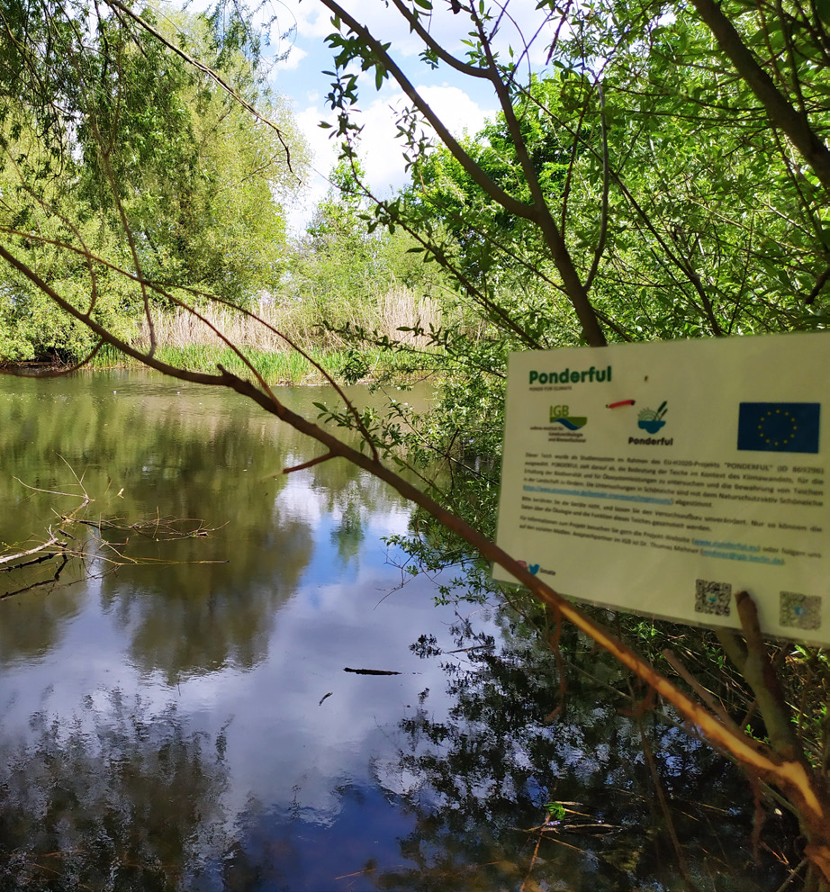Implications of pond science for policy
Keynote speech from Pete Brotherton, Natural England
- Policies for ponds: recent developments and future directions
- Measuring the impacts of freshwater restoration on the goals of the European Green Deal
- Financing ponds and pondscapes as nature-based solutions
- Restoration project for a degraded urban ecosystem in Golbasi Flats, Ankara: a precarious equilibrium
- Lakes or ponds? The Water Framework Directive and the reference conditions in Spain
- Policies and practises impacting the implementation of nature-based solutions: a comparative study of ponds and pondscapes in eight countries
Pond biodiversity benefits for the wider landscape
Keynote speech from Lenore Fahrig, Carleton University
- Challenges and opportunities of restoring pondscapes in a highly altered Mediterranean landscape
- Examples of creating ponds and pondscapes with clean water for biodiversity conservation around Europe
- The NatureSpace District Licensing Scheme: pond creation and restoration best practise for great crested newt (Triturus cristatus)
- The role of ponds as reservoirs of freshwater biodiversity at a landscape scale: results form the Water Friendly Farming project, a demonstration site in the EU-funded PONDERFUL programme
- District licensing for great crested newts – 5 years in
Maintaining and increasing pond biodiversity
- Building pondscapes for amphibian metapopulations
- More Porto Project: enhancing small waterbodies through management and restoration actions
- Drying-out as a key management practise for fish ponds, to promote primary producers and macrophyte species richness
- Field hygiene in pond construction and pond management. Amphibian habitats: insights from invasive neophyte management in large-scale projects
- Can disturbance benefit the biodiversity of Mediterranean temporary ponds? Insights and challenges from vegetation management
- The geology of ponds: implications for their management today
- Monitoring occupancy trends in great crested newts (Triturus cristatus) in England: a decade of annual volunteer surveys using eDNA and its application to the assessment of conservation approaches for this species
- The power of ponds in catchment restoration: 5 years research on wetland plant communities from the Pitsford Water Friendly Farming demonstration project
- Restoring ‘ghost ponds’ to boost freshwater wetland plant biodiversity conservation: assessments of success using plant macrofossils
- Macrophyte succession in Norfolk’s resurrected ghost pingo ponds demonstrates exciting potential for wetland conservation
- Do agri-schemes deliver for pond biodiversity?
- Potential design and management measures to enhance biodiversity in artificial rural ponds: the case of cattle water ponds in Uruguay
Maximising the value of ponds as nature-based solutions
- Ponds and pondscapes as nature-based solutions (NbS) for adaptation to climate change: evidence-based success stories across 8 demo sites
- The management of stormwater ponds and wetlands to improve water quality and quantity management in Auckland, New Zealand
- Unlocking the potential of ponds and pondscapes as nature-based solutions for climate resilience and beyond: hundred evidences
- CLIMA-Pond concept and its standardisation: developing guidelines for widespread adoption of nature-based solutions
- Exploring naturalized urban ponds in Barcelona: an interdisciplinary study
- Implementation of pond/pondscape nature-based solutions for addressing new emerging societal challenges
- Flood management ponds contribute to pondscape biodiversity: evidence from dragonflies in the Eddlesdon Water catchment (Scotland)
- A multi-criteria decision support tool for guiding the implementation of pond/pondscape Nature-Based Solutions
- The POUNDER Project – enhancing urban pond resilience through eco-evolutionary dynamics
Pond biodiversity and climate
- Greenhouse gas dynamics in ponds, insights from the PONDERFUL project
- Assessing the storage of carbon (C) and nitrogen (N) in the sediment of beaver-created wetlands
- Effects of urbanisation, habitat characteristics, and management on garden pond biodiversity: a citizen science approach
- Unveiling bacterial communities in rainwater harvesting pond during summer: Insights from MinION sequencing
- Vernal pools, temporary wetland which enhance duckling success
- Understanding the factors affecting the diversity of zooplankton communities in a pond metacommunity
- Drying of open-canopy ponds threatens pollinator richness and plant-pollinator interaction network structure
- Understanding the role of network connectivity in safeguarding community functioning and diversity against salinity stress
- Relationship between pond condition and its water quality with species richness and diversity of macroinvertebrate communities in Mediterranean ponds
- Distribution patterns of caldoceran zooplankton at a European scale
- Drivers of urban freshwater invertebrate communities along a climate gradient

